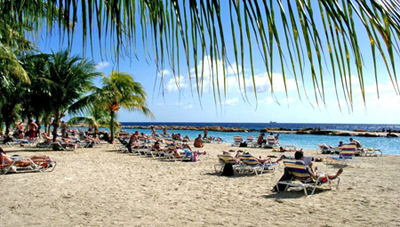Today the sun is shining brightly throughout the little town of Dillon, MT a place Great Harvest Franchising offices calls home. Anyone with a shade of skin similar to my own rather pale hue may be
 afraid to hit the outdoors for the completely validated fear of getting sunburned. But what isn’t often realized is that completely eliminating the opportunity for the sun to hit your bare skin can actually be a detriment itself if the proper supplementation isn’t taken.
afraid to hit the outdoors for the completely validated fear of getting sunburned. But what isn’t often realized is that completely eliminating the opportunity for the sun to hit your bare skin can actually be a detriment itself if the proper supplementation isn’t taken.
Vitamin D, also known as “The Sunshine Vitamin”, is unique in that its largest source is not food but rather the actual UV B rays from the sunlight. When sunlight hits your skin it not only gives you that nice summer glow, but also elicits a reaction in your skin which jumpstarts the production active vitamin D. If you’re healthy and one to seventy years old you need about 600 IU per day (which is about 15 μg). Standing in the sunlight with your chest, face, and arms exposed without sunscreen for 15 minutes just a couple times a week will most likely get you what you need. If you have darker skin, you may need a little more as the increased amounts of melanin can limit the skin’s ability to produce vitamin D from sunlight.

Whether it is spring, summer, winter, fall or even a cloudy day there is sufficient sunlight available to produce vitamin D. It is important though to keep in mind that, as with many things, it is the dose that makes sunlight toxic and sunscreen should be worn outside of those 10-15 minutes to prevent excessive exposure.
If you rely on diet alone you’ll most likely be selling yourself short of vitamin D as Western diets typically offer a mere 100 IU/day. What if you’re following a Mediterranean diet that is rich in oily fish which is a food source of vitamin D? Although, you’re most likely getting more, you are probably still well below what you need as these diets provide only 200 IU/day on average. The other option? Taking a supplement or consuming a vitamin D fortified food such as milk, some cereals, or orange juice. Vitamin D is also naturally occurring in fatty fish, liver (since Vitamin D is produced there), and egg yolks.
So take a break, enjoy the warm weather and get your vitamin D at the same time!
References:
Mark BL, Carson JA. Vitamin D and Autoimmune Disease – Implications for Practice from Multiple Sclerosis Literature. J Am Diet Assoc. 2006; 106: 418-424.
Institute of Medicine, Food and Nutrition Board. Report at a Glance: Dietary Reference Intakes for Calcium and Vitamin D. Washington, DC: National Academy Press, 2010.



